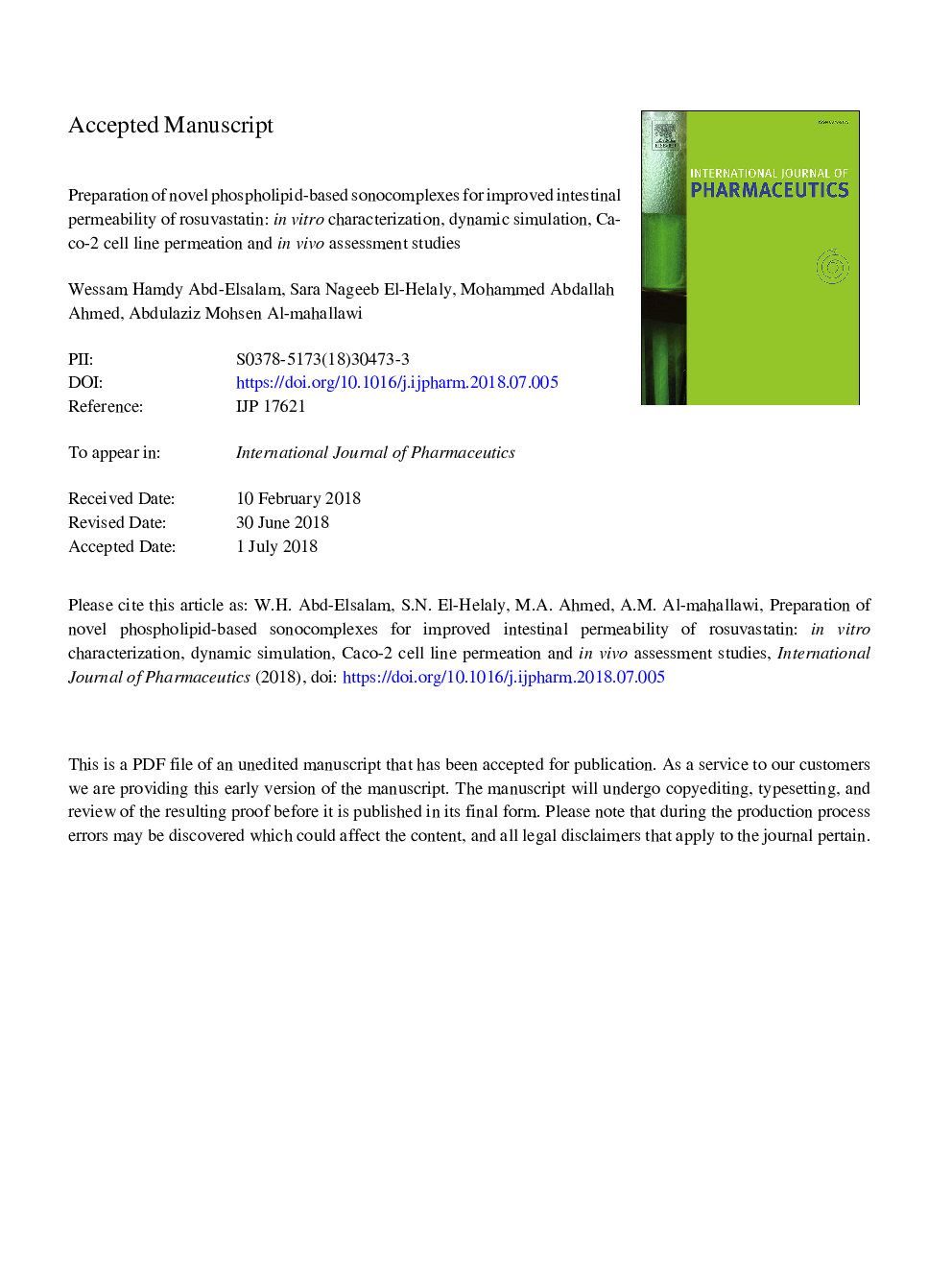| Article ID | Journal | Published Year | Pages | File Type |
|---|---|---|---|---|
| 8519720 | International Journal of Pharmaceutics | 2018 | 32 Pages |
Abstract
The study aimed to fabricate innovative drug-phospholipid complexes termed “sonocomplexes” adopting ultrasound irradiation to increase the liposolubility and to enhance the intestinal absorption of rosuvastatin as a model drug for BCS class III active pharmaceutical ingredients (APIs). A 22 full factorial design was fashioned to investigate the influence of phosphatidylcholine content in the phospholipid (â¼30 and 60%) and molar ratio of phospholipid to rosuvastatin (1:1 and 2:1) on physicochemical properties of sonocomplexes. In comparison to pure drug, sonocomplexes showed a minimum of about 2 folds and a maximum of about 15 folds increase in lipophilicity (expressed in terms of partition coefficient, P). Results of molecular docking, dynamic simulations, Fourier transform infrared (FTIR) spectroscopy and differential scanning calorimetry (DSC) confirmed the strong interactions between rosuvastatin and the phospholipid via hydrogen bonding interaction, van der Waals forces and hydrophobic interaction. The complexation efficiency reached around 99% and transmission electron microscopy (TEM) of the aqueous dispersion of the optimal sonocomplex showed spherical nanosized vesicles. The optimal sonocomplex showed significantly superior Caco-2 cells permeability and markedly better oral bioavailability compared to the pure drug. In summary, sonocomplexes can be considered as effective approach for enhancing the liposolubility and consequently the intestinal permeability of BCS class III drugs.
Related Topics
Health Sciences
Pharmacology, Toxicology and Pharmaceutical Science
Pharmaceutical Science
Authors
Wessam Hamdy Abd-Elsalam, Sara Nageeb El-Helaly, Mohammed Abdallah Ahmed, Abdulaziz Mohsen Al-mahallawi,
